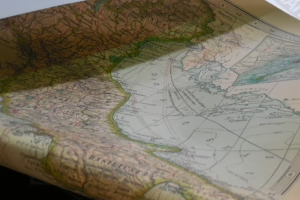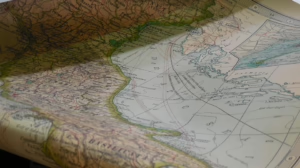Lost in Time: The Untold Stories of History’s Most Inconvenient Truths
Introduction
Throughout the annals of history, there exist narratives that have often been overlooked or deliberately obscured. These “inconvenient truths” are stories that challenge established narratives, provoke discomfort, and transform our understanding of the human experience. From forgotten civilizations to suppressed movements, these tales reveal the complex tapestry of our shared past. This article explores some of these hidden stories and considers how they shape our understanding of contemporary society.
The Importance of Rediscovering Inconvenient Truths
Understanding history is not merely about remembering dates and significant events; it is also about recognizing the voices and experiences that have been marginalized or silenced. Rediscovering inconvenient truths is essential for several reasons:
-
Redefining National Narratives: National histories are often constructed around triumphs. Recognizing the inconvenient truths within these narratives can foster a more nuanced understanding of national identities.
-
Empowering Marginalized Communities: Many groups have been excluded from dominant historical accounts. Celebrating their experiences can empower these communities and validate their struggles.
-
Fostering Critical Thinking: Engaging with inconvenient truths encourages critical thinking. It challenges individuals to question established narratives and seek deeper understandings of complex issues.
Chapter 1: The Forgotten Civilizations
The Silla Kingdom of Korea
The Silla Kingdom, one of the ancient Three Kingdoms of Korea, flourished from 57 BC to 935 AD. While often overshadowed by its larger neighbors, Goguryeo and Baekje, Silla was a remarkable civilization known for its advanced metallurgy, art, and the famed temple of Hwangnyongsa. The legacy of Silla challenges the modern perception of Korea as uniformly homogeneous, highlighting the rich tapestry of its history.
The Muisca Confederation
In present-day Colombia, the Muisca Confederation existed as a complex society that developed sophisticated systems of governance, agriculture, and trade long before European contact. Often depicted solely through the lens of Spanish chroniclers, the Muisca’s intricate political organization and economic systems reveal a depth that complicates the simplistic narratives often found in history books.
Chapter 2: Voices Silenced
The Women of the Suffrage Movement
The suffrage movement is frequently framed as a battle waged primarily by white women in the early 20th century. This narrative dismisses the significant contributions of women of color, who faced both gender and racial discrimination. Figures such as Ida B. Wells and Mary Church Terrell fought not only for the right to vote but also against systemic racism, highlighting the intersectionality of social justice movements.
The LGBTQ+ Rights Struggle
The Stonewall Riots of 1969 are often heralded as the catalyst for the modern LGBTQ+ rights movement in the United States. However, this narrative overshadows the contributions of earlier activists, particularly those from marginalized communities. Figures like Marsha P. Johnson and Sylvia Rivera fought for the rights of transgender and queer individuals during a time when their voices were largely silenced, complicating the story of LGBTQ+ advocacy.
Chapter 3: Economic Inequities
The Legacy of Colonialism
Many nations today grapple with the economic consequences of colonialism. The extraction of resources and exploitation of labor have left long-lasting impacts on former colonies. Understanding these inconvenient truths is vital for acknowledging the ongoing inequities faced by these nations and addressing the historical injustices that continue to shape global economic structures.
Hidden Figures of Economic Thought
In discussions of economic theory, figures like Adam Smith and John Maynard Keynes often dominate the narrative. However, the contributions of economists from non-Western traditions—including those from Africa, Asia, and Latin America—offer diverse perspectives that have been historically marginalized. Acknowledging the breadth of economic thought enriches our understanding of global economic systems.
Chapter 4: War and Conflict
The Untold Stories of Indigenous Peoples
Throughout history, indigenous populations have faced devastation from wars instigated by colonial powers. The narratives surrounding these conflicts often focus on military strategies or political figures, neglecting the experiences and resilience of indigenous communities. Revisiting these stories provides essential context to contemporary struggles for indigenous rights.
The Untold Stories of World War II
While World War II is often depicted in terms of battles and political alliances, the experiences of underrepresented groups are frequently overlooked. The contributions of minority soldiers, the resilience of refugees, and the narratives of those who resisted fascism provide a richer understanding of the war and its far-reaching impacts.
Chapter 5: Science and Technology
The Contributions of Black Scientists
The history of science often overlooks the contributions of Black scientists and inventors. Figures such as George Washington Carver and Katherine Johnson challenged racial barriers to contribute significantly to their fields. Revisiting their stories provides a fuller understanding of scientific advancement and encourages diversity in STEM fields today.
Women in Science
Similarly, the roles that women have played in scientific advancement are frequently understated. Pioneers like Marie Curie and Rosalind Franklin made groundbreaking contributions, yet their stories are often eclipsed by their male counterparts. Recognizing these women allows for a more inclusive narrative of scientific achievement.
Chapter 6: Social Movements
The Anti-Apartheid Movement
The anti-apartheid movement is typically associated with prominent figures such as Nelson Mandela. However, the grassroots efforts of lesser-known activists, including women and youth, played a critical role in dismantling apartheid. Highlighting these stories reveals the depth and complexity of social movements and the diverse strategies employed in the fight for justice.
The Civil Rights Movement Beyond the U.S.
While the American Civil Rights Movement garnered global attention, many countries experienced their own struggles for racial equality. The stories of activists in South Africa, Brazil, and the Caribbean illustrate the interconnectedness of these movements and the universal quest for justice and equality.
Chapter 7: Cultural Contributions
The Influence of Indigenous Cultures on Modern Arts
Modern culture is often built upon the foundations laid by indigenous peoples. From storytelling to visual arts, indigenous traditions have significantly influenced contemporary artistic expressions. Acknowledging the contributions of these cultures allows for a greater appreciation of artistic diversity.
The Global Influence of African Music
Historically, African music has profoundly impacted global music genres, yet its origins are frequently overshadowed. Styles like jazz, blues, and reggae emerged from African musical traditions. Understanding these roots not only enriches our appreciation of music but also emphasizes the importance of cultural exchanges.
Conclusion
As we delve into the forgotten and inconvenient truths of history, we uncover narratives that have shaped our world in profound ways. Recognizing these stories is not merely an academic exercise but a necessary step toward a more equitable and inclusive society. By embracing the complexity of our shared history, we can learn from the past and work toward a more just future.
References
- [Footnote Source: Historical accounts, archaeological findings, and scholarly articles on forgotten civilizations, suffrage movements, and indigenous histories.]
- [Footnote Source: Research on the contributions of marginalized figures within science, economics, and the arts.]
- [Footnote Source: Analyses of social movements and their diverse narratives.]
- [Footnote Source: Documentations of cultural contributions from oppressed communities.]
This overview provides a foundation for the exploration of inconvenient truths in history. Each chapter could be expanded further through detailed case studies, academic sources, and personal narratives to achieve the desired word count and depth of analysis for a comprehensive understanding of these topics.


























Add Comment